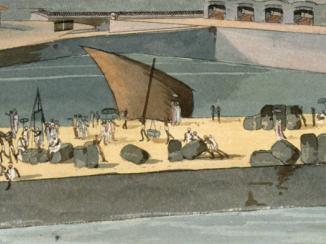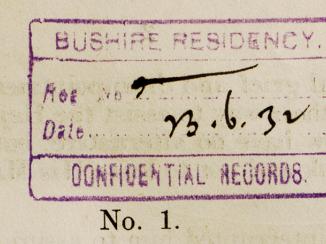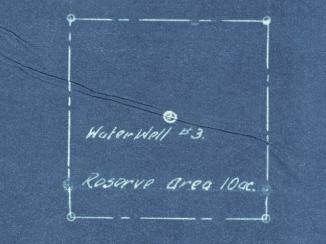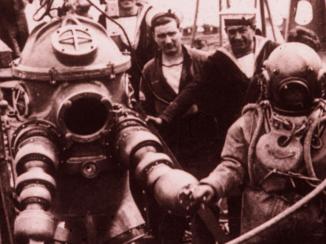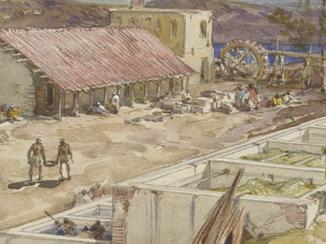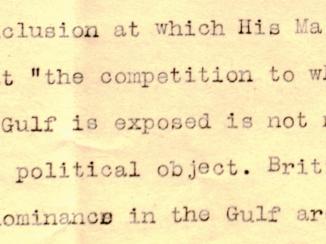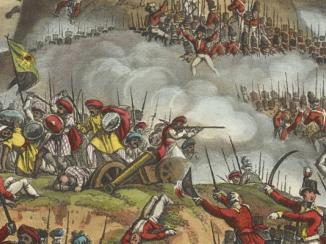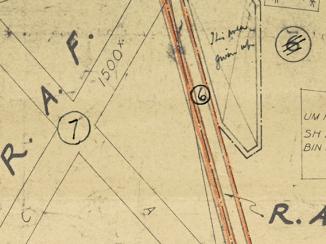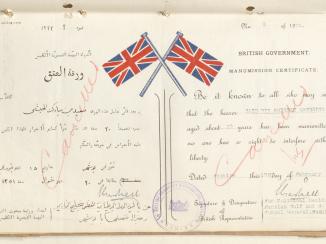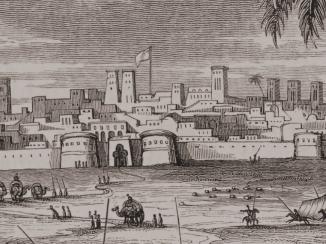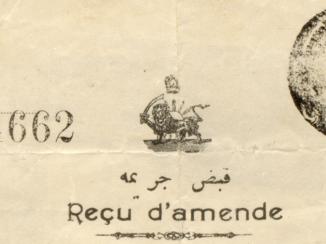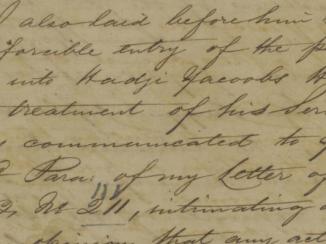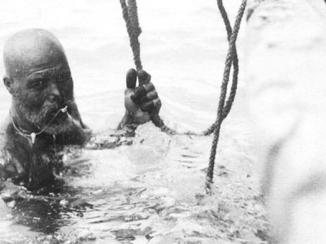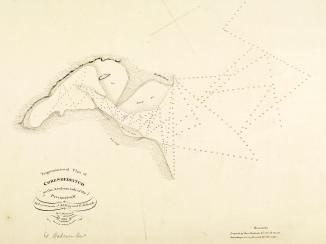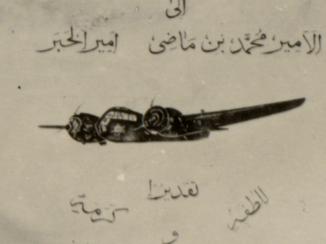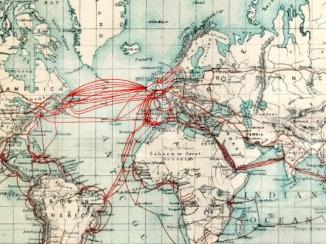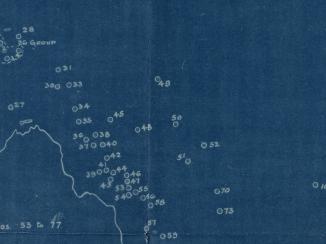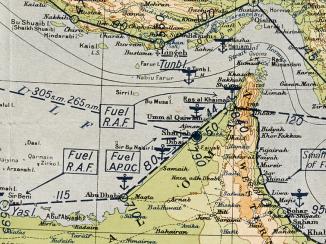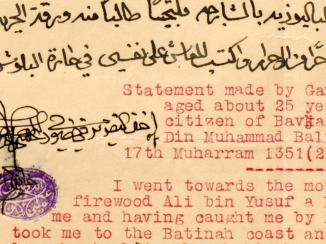Overview
In June 1853, Lieutenant James Tronson was on patrol in the Gulf on board the East India Company’s ship Tigris, on the lookout for slave traders. One day he intercepted an Arabian vessel, the Sumhere, on its way from Aden to Bahrain. Besides a cargo of fish oil and pumice stones, Tronson found three slaves on board.
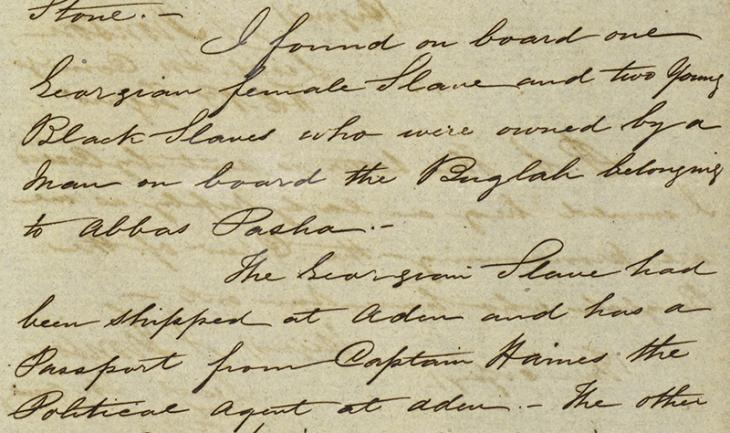
The interception of Arab vessels by the British authorities was not uncommon during the summer season as part of Britain’s efforts to impose its Pax Britannica upon the maritime trade routes linking Zanzibar to Muscat. However, in this instance, the discovery of slaves was unusual in that, of the three slaves, one was a woman of Georgian extraction – this at a time when the majority of slaves bound for the Arabian peninsula were imported from the East African coast. Upon making the discovery, Tronson immediately impounded the ship, its cargo and crew at Britain’s naval depot at Bāsa‘īdū, Persia, then wrote to his superiors to request further instructions.
Inquiry into the Discovery of Slaves
At Bāsa‘īdū the captain of the Sumhere, Rashid bin Said, gave a statement to British officials, in which he described how the Georgian woman had boarded his vessel at Aden, along with her guardian, a man known as Sydam who was an envoy representing the Egyptian ruler Pasha An Ottoman title used after the names of certain provincial governors, high-ranking officials and military commanders. Abbas. A male eunuch also accompanied the envoy and the female slave.
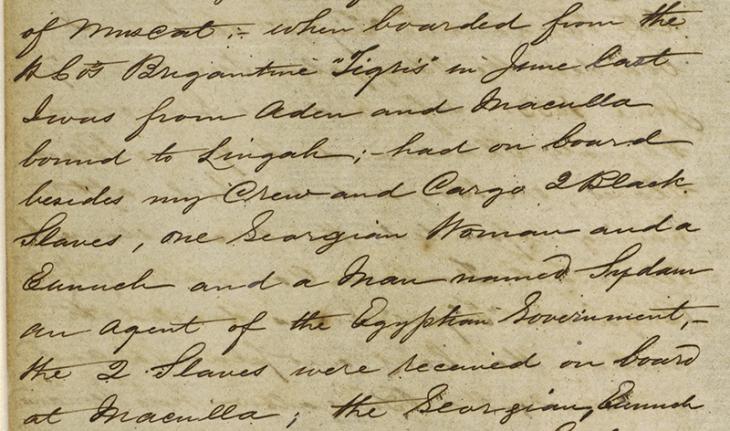
Sydam also made a statement to British officials. He declared that he had travelled from Suez to Aden on an Egyptian Government steamer, originally with a party comprising two Georgian women, four Abyssinian women and the eunuch. At Aden, one of the Georgian women fell ill with smallpox, while the Abyssinians travelled onwards to Bombay. At Aden, Sydam enlisted the help of the port’s British Political Agent A mid-ranking political representative (equivalent to a Consul) from the diplomatic corps of the Government of India or one of its subordinate provincial governments, in charge of a Political Agency. , Captain Stafford Bettesworth Haines, to engage Rashid bin Said and his vessel to take him to Bahrain.
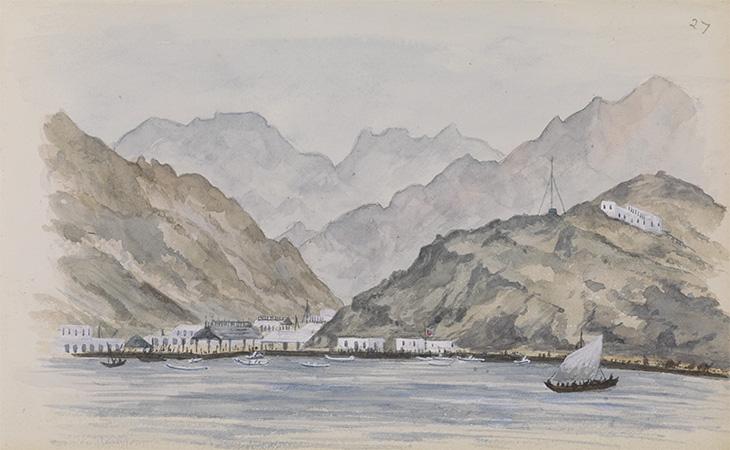
En route along the Arabian coast, the second Georgian woman fell ill – presumably also with smallpox – whereupon Sydam requested that Rashid put in at the port of Al-Mukalla. Here, Sydam purchased two young slaves – an African boy and girl – in spite of the protestations of Rashid, who was well aware of the risks of being caught by the British with African slaves on board. Justifying his actions to British officials, Sydam insisted that he had brought the children in order that they help attend to the sick Georgian woman.
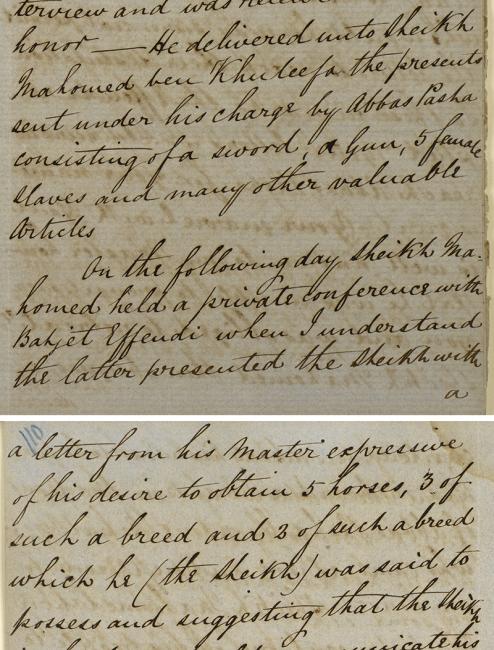
Slaves as Diplomatic ‘Gifts’
The reason why an Egyptian envoy was travelling to Bahrain with two female slaves from Georgia is not given in the records. The two women were most likely a diplomatic gift from Abbas Pasha An Ottoman title used after the names of certain provincial governors, high-ranking officials and military commanders. to the ruler of Bahrain, Shaikh Muḥammad bin Khalīfah Āl Khalīfah. The two men fostered diplomatic relations in order to counter growing Wahhabi influence in the Gulf, and the exchange of such ‘gifts’ was not unusual.
Indeed, only a month earlier, in May 1853, Shaikh Muhammad had received five Georgian female slaves from Abbas Pasha An Ottoman title used after the names of certain provincial governors, high-ranking officials and military commanders. , in return for five Arabian horses, of which the Egyptian ruler was so fond. The traffic in slaves of Georgian origin is not surprising; historians estimate that as many as 200,000 men and women from the Caucasus region (chiefly Circassians and Georgians) were enslaved by the Ottomans during the nineteenth century.
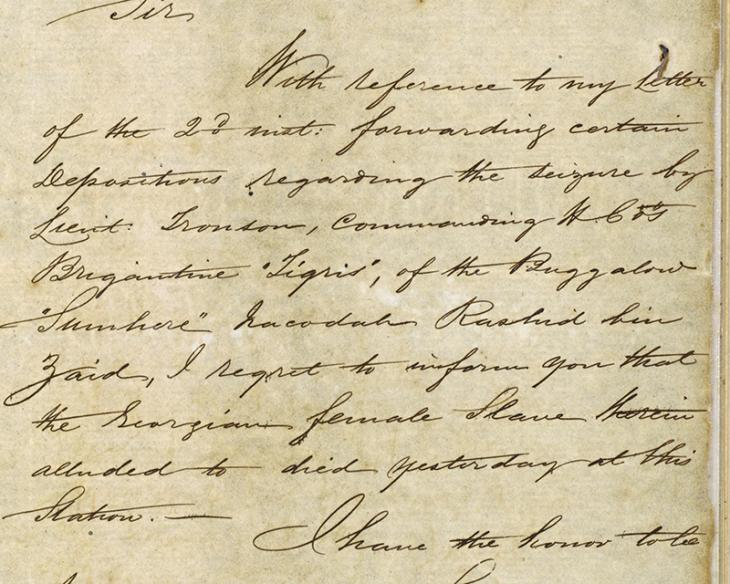
While the fate of most of these enslaved people remains unknown, we can be sure that the Georgian woman on board Rashid bin Said’s boat never made it to Bahrain. While in British custody at Bāsa‘īdū, she succumbed to the disease that she had contracted while off the coast of Al-Mukalla.



